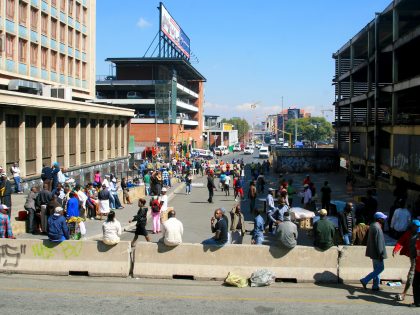
What does it have to do with Marikana?
The Marikana Massacre changed democratic South Africa forever. It can also catalyze resistance to the current order.
21 Articles by:
Benjamin Fogel is a contributing editor at Africa is a Country and Jacobin.

The Marikana Massacre changed democratic South Africa forever. It can also catalyze resistance to the current order.

South Africans are learning the hard way that corruption cannot simply be solved through technical fixes and increasing “accountability” through locking the villains up.

What exactly did South Africa’s government do with the time they gained through the two-month COVID-19 lockdown, except to brutalize its people?

South African politics urgently needs an injection of electoral energy from the left, that speaks in a language that resonates with voters, rejects chauvinism and embraces democracy.

Brazil is the world’s second-largest African nation, but just elected an outright rightwing racist as president. It can’t be good for the continent.

Jacob Zuma’s nearly decade long regime competed with Thabo Mbeki as the worst presidency of South Africa’s short post-apartheid order.

Mugabe was a neoliberal stooge up until the 2000s and far from being a Pan-Africanist hero sent his army to intervene in the most rapacious war in Africa’s history in the Congo.

Done ‘debating’ whether “Larney Jou Poes” is free speech? Let’s talk about the conditions of farmworkers.

And why is the London Review of Books giving Johnson, a rightwing South African liberal, a regular platform to espouse his rantings?

South Africa’s media, already lacking any serious labor reporting, have no interest in fairly reporting the strike by mine workers.

South Africa’s second largest political party, the Democratic Alliance, exhibits the same paranoia as does the ruling party when it comes to dissent.

On the rather extraordinary claim that white South Africans have been politically and economically marginalized since the inception of majority rule in 1994.

It is not often that analysts of diametrically opposed ideological tastes in South Africa agree, except about Julius Malema.

Mmusi Maimane, despite his apparent reputation in opposition circles as a “man of the people,” appears to possess a rather limited political imagination.

In its current form libertarianism and its worship of the market is utterly irrelevant to South Africa.

For those whose hatred of Bono is as deep as mine or who are merely looking for concrete reasons to despise this particular celebrity do-gooder.